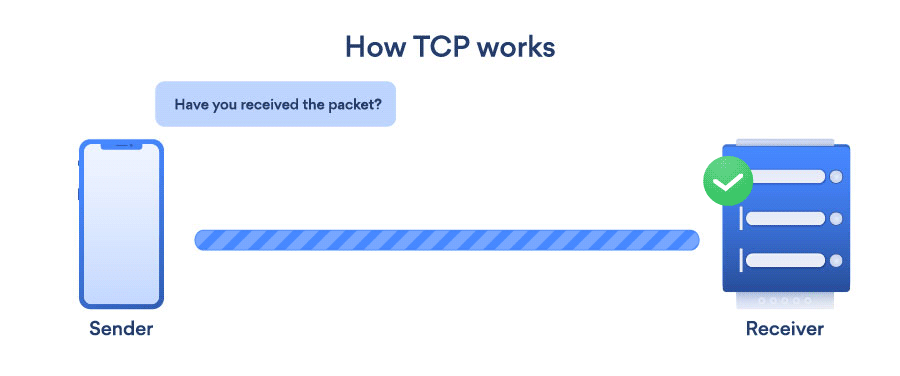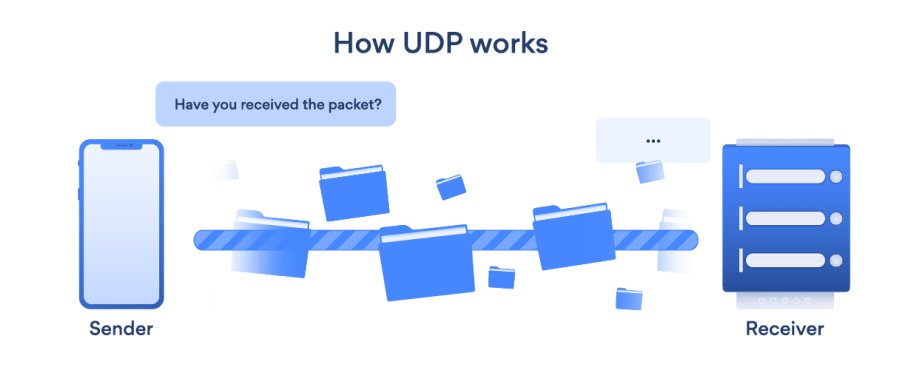TCP vs UDP
FTP
HTTPS
STREAMING
VOIP
Transfer Control Protocol (TCP)
- The online communication between two systems need to be “good” and reliable to guarantee that the data is received correctly.


User Datagram Protocol (UDP)
- The online communication between two systems are more faster and no guarantee for the data transmit, and create opportunities for exploitation in the form off DDoS attacks.
COMPARISON BETWEEN TCP AND UDP
TCP
UDP
| It is a connection-oriented protocol. |
| It is a connection-oriented protocol. |
TCP reads data as streams of bytes, and the message is transmitted to segment boundaries.
UDP messages contain packets that were sent one by one. It also checks for integrity at the arrival time.
TCP messages make their way across the internet from one computer to another.
It is not connection-based, so one program can send lots of packets to another.
TCP rearranges data packets in the specific order.
UDP protocol has no fixed order because all packets are independent of each other.
The speed for TCP is slower.
UDP is faster as error recovery is not attempted.
Header size is 20 bytes
Header size is 8 bytes.
TCP is heavy-weight. TCP needs three packets to set up a socket connection before any user data can be sent.
UDP is lightweight. There are no tracking connections, ordering of messages, etc.
| TCP does error checking and also makes error recovery. |
| UDP performs error checking, but it discards erroneous packets. |
| Acknowledgment segments |
| No Acknowledgment segments |
| TCP is reliable as it guarantees delivery of data to the destination router. |
| The delivery of data to the destination can’t be guaranteed in UDP. |
Using for HTTP, HTTPs, FTP, SMTP, Telnet
Using for DNS, DHCP, TFTP, SNMP, RIP, VOIP.

